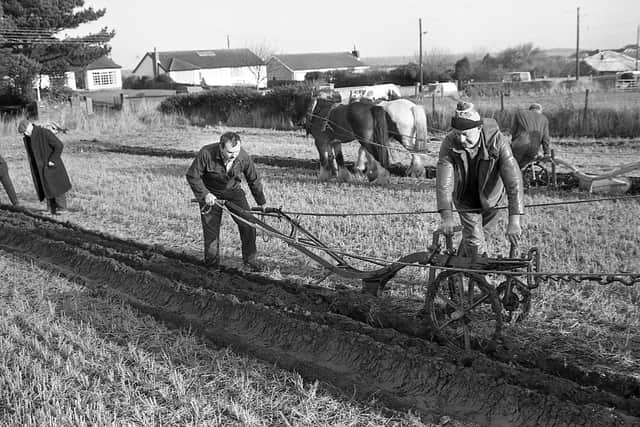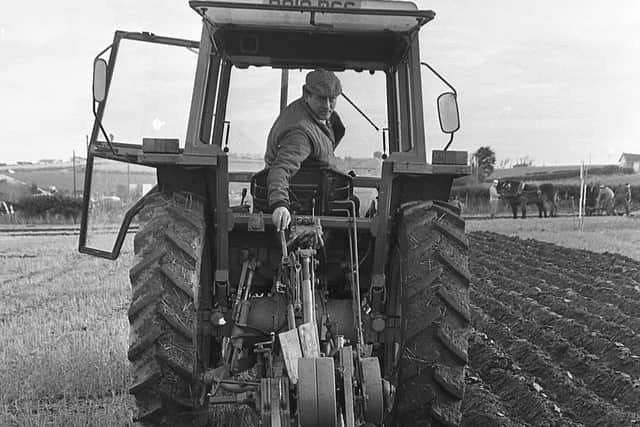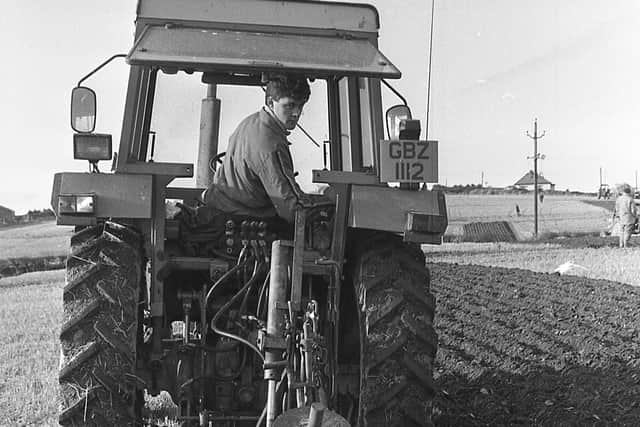Bygone Days: Warning that Northern Ireland milk industry is at a ‘crossroads’ (1992)
and live on Freeview channel 276
Mr Shaw said that Northern Ireland was at a watershed in the affairs of its milk industry. The monopoly powers of the Milk Marketing Board (MMB) also looked likely to disappear.
These powers had, said Mr Shaw, given stability and success to both producers and processors for more than 40 years.
Advertisement
Advertisement
“The MMB has served us well, but it is now crucially important that the new arrangements provide a proper framework for the continued success of our industry,” he said.


“Decisions taken in the new few months, of year, will set scene for the next 20 or 30 years. We must get it right. The new arrangements need to be acceptable to producers, to processors, to the European Commission and the United Kingdom government.”
Mr Shaw said that the board, as it was known, was to disappear. And he asked: “What do we need in its place? The board has two functions; one is collecting and selling milk on behalf of producers. The others is as a milk processor.
“I see a very important role for a voluntary co-op in the future, to collect, test and sell milk on behalf of producers. If the MMB should lose its monopoly powers, there are two choices for the producers. They can supply milk to a co-op which would sell it on their behalf, or it can be sold directly to a processor. The choice will depend on the best price.”
Advertisement
Advertisement
Mr Shaw said that many producers would fear the uncertainty of going it alone and would prefer to sign up with a new co-op, say, for two years. Beyond this initial period, the continued support for the co-op by producers and processors would depend on how good a job that co-op was doing, he said.


“At the beginning, the co-op would want 80 or 90 per cent of farmers to sign up. If the MMB can come to a satisfactory arrangement with processors, then they would have a good chance of achieving this figure.
“I hope the MMB can act quickly. A good early agreement with the Dairy Trade Federation would give the best chance of getting 90 per cent of producers to sign up. Failure could provoke losing the support of those who might otherwise give it. If that should happen, then the new co-op could have difficulty in getting the necessary 80 or 90 per cent. This could undermine the new co-op to such an extent that it might be doomed from the start.
“The alternative is for producers and processors to have individual contracts. More processors, I suspect, can work comfortable with either arrangement. Farmers need good processors if they are to get good prices. The processor is the vital link between producers and supermarkets. It is important that the processing sector develops properly in the next 10 years, and beyond the year 2000.”
Advertisement
Advertisement
Mr Shaw said that it was no longer sufficient for a processor to look only at its competitors in Northern Ireland.


“Instead, it has to look internationally, to Eire, England, the rest of Europe and even to North America. If we look at Eire we see that the big five co-ops have each an annual turnover of around £500 million; four have recently become public companies. In England, Northern Foods is the biggest dairy company, with a turnover of more than £1 billion. M&D Foods, in Denmark, is a co-op with a turnover of £2 billion.
“By contrast, Leckpatrick, with a turnover of £100 million is the biggest processor in Northern Ireland. They are, nonetheless, well capable of holding their own in world markets. They have always sold outstanding quality products and now export to 40 different countries. Leckpatrick are reducing their dependence on commodities and moving more into high category, added value products. The recent launch of the Green Gate brand name has been a great success. While, therefore, we are smaller in Northern Ireland, nonetheless some of our processors have done well. However we need to be aware of the trends internationally.
“Against the background of these different points, it is up to producers to decide what stake they wish to maintain in the processing sector. The structure of ownership would be important, and substantial commitment would be required.”